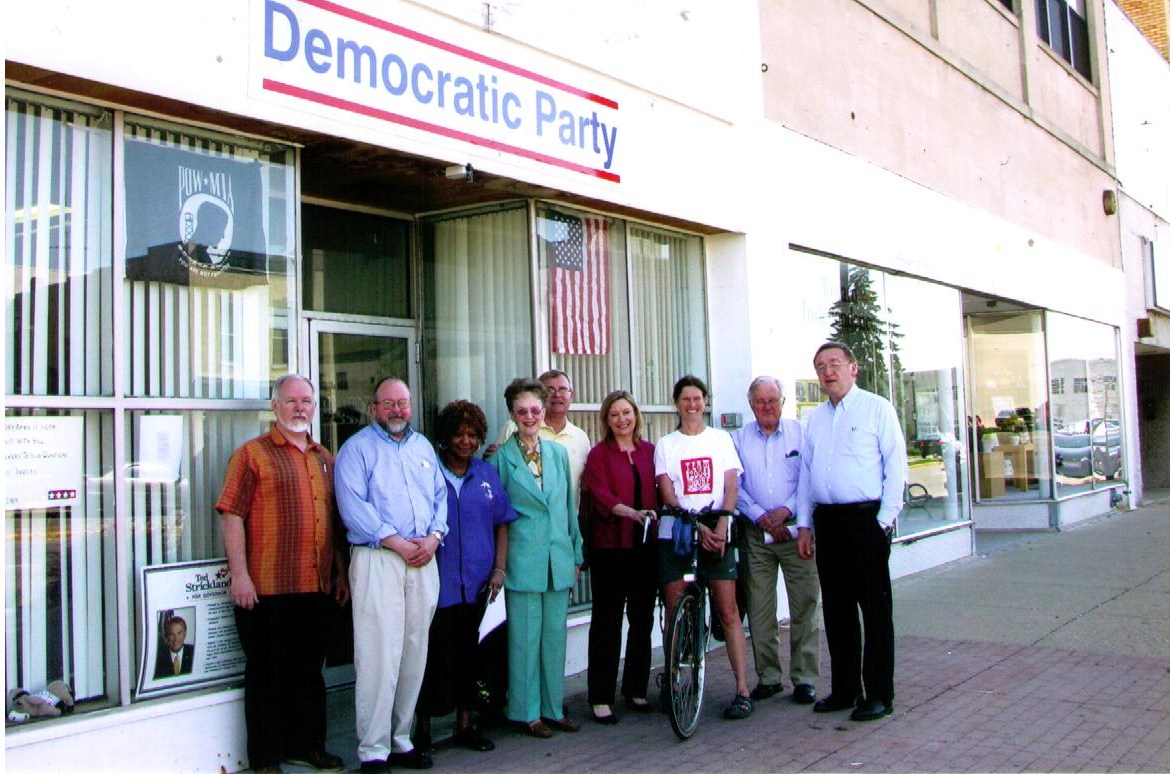The Voice of Freedom will be heard across America on April 19, 2010 (Patriots Day), as people gather at their state capitols to participate in a Re-Dedication Ceremony to Creator, Country and Constitution and to serve the Articles of Freedom on elected officials — a non-political document which seeks to end violations of the Constitution and restore constitutional governance at the state and federal level. The special program will last 45 minutes and will be given at the same moment in time across all time zones. In Ohio, the event begins at 3 PM on the steps of the State Capitol.
The Articles of Freedom are the non-political work of the Continental Congress 2009, a group of 116 citizen-delegates from 48 states, who met for 11 days in St. Charles, Illinois from November 11-21, 2010. The contents address fourteen violations of the Constitution, each of which has injured America’s economy and the Nation. Each of the 14 Articles includes “Remedial Instructions” to federal and state government officials, designed to end the violation. There is no other known document or plan in America at this time that complies with the U.S. Constitution and shows the people, and a rogue government, how to put the nation back on track. The Articles contain a pledge that asks citizens to join with a “goodly number of millions” to hold elected officials accountable to their Oath of Office, through obedience to the Constitution.
The April 19th ceremony will include a Color Guard; a prayer; singing to America; the Pledge of Allegiance and America’s Creed; a talk about the Purpose of the Articles and why they are being served on elected officials; and an opportunity for participants to re-dedicate themselves to the Constitution, Its protection and defense. In every state, the two U.S. Senators, the member of the U.S. House of Representatives whose district includes the state capital city, the Governor and the Head of each Chamber of the State Legislature have been invited to receive the Articles; those who do not attend the ceremony will be served at their offices immediately following the event.
“The First Amendment guarantees the Right of the People to Petition their servant government for a Redress of Grievances,” says Robert Schulz. “We have petitioned for a Remedy for every major violation of the Constitution since 1994, knowing what the violations would do to our people and our way of Life. Our Petitions have been answered with Silence and repeated injury to our economy, our Republic and our Sovereignty,” he continued. “The Articles are a constructive legal document rooted in the Constitution. We will serve it on our elected officials as the appropriate next step and wait for their response. The Constitution cannot defend itself, and it is not a menu. It is now up to the People to peacefully and lawfully procure relief,” said Schulz.
Event planners view the ceremony as an opportunity to show the conscious return of an increasing number of Americans who feel it is their duty to ensure officials follow the Constitution. “We await the day when every elected official in America, regardless of party, will have the sole purpose of upholding the Constitution in the governmental affairs of the People, and our citizens, in turn, will be vigilant – in every state and at the federal level – to hold them accountable,” he concluded.
The non-political event is open to all who want to show support for the Constitution. Planners urge people to visit www.articlesoffreedom.us/ThePlan.aspx to print out and bring along a copy of the program for the ceremony so they can participate fully.
To read the Articles of Freedom (html), go here.
To read the Articles of Freedom (pdf), go here.
To read a summary of the articles, go here.

